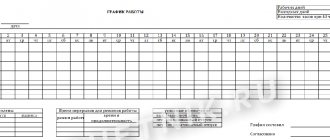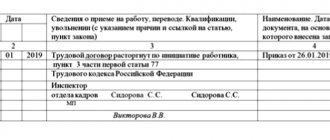Reorganization of housing cooperatives into HOAs
Back in 2004, there were no doubts about the reorganization of the housing cooperative . Article 14 of the Federal Law of December 29, 2004 N 189-FZ directly indicated that this is the responsibility of the housing cooperative. Once you’ve built it and fulfilled your function, move on to a new form.
Two years later, the obligation became a right. And this situation still remains: according to Article 122 of the Housing Code of the Russian Federation, the general meeting of members of the housing cooperative decides whether the housing cooperative will be transformed into a HOA or not.
In the middle of this year, an attempt was made to again oblige cooperatives to transform into partnerships: it was supposed to clarify that the house could be under the management of a housing cooperative only until the last member of the cooperative did not pay the share.
After this, a decision is made to reorganize the housing cooperative into a partnership or a new method of managing apartment buildings. If the general meeting of members of the housing cooperative does not make such decisions, the local government intervenes and holds an open competition for the selection of management entities.
The draft Federal Law appeared on the official portal for the publication of legal acts on March 1, 2021. But things are still there, no progress has been observed, the project is still at the stage of public discussion.
Why would it be nice if the amendment were adopted? It is logical that the next form of management of apartment buildings after the housing cooperative has fulfilled its main function - building a house - should become an HOA. If a cooperative has a cohesive meeting of members and an established effective system of house management, then it can only be preserved by transforming into a partnership.
Positive and negative aspects of HOA membership
Before joining a partnership, you need to evaluate the pros and cons of membership. Only the accountant and the chairman and members of the board receive salaries in the HOA. Other representatives of this organization are not entitled to remuneration.
The basis for payment is the decision of the general meeting of the HOA. The financial advantages of membership in an HOA can manifest itself in the fact that a citizen does not pay housing and communal services.
The positive points are:
- the ability to influence the resolution of issues related to the management of the house;
- interaction with various local authorities, which allows reducing costs and time for providing services in the housing and communal services sector;
- creating a favorable environment in the house, in particular, by renovating entrances;
- competent distribution of financial resources located in the general fund;
- organization of control over the activities of work carried out in the premises.
The disadvantages are that in practice it is difficult to make a single decision, as conflicts occur. The reason for this is the residence of representatives of different social groups in the same house. In addition, resolving issues independently entails the need for financial investments.
Consequences of becoming a member of an HOA
After a citizen becomes a member of an HOA, this action entails certain consequences. They are expressed in the form of powers and obligations, negative and positive aspects reflected above. The process of joining the ranks of the partnership is voluntary, this indicates the possibility of refusing to participate in the activities of the organization .
In this case, the person is not deprived of the opportunity to receive information regarding the management of the house and appeal the decisions made by the HOA. This applies to accounting-type documentation, minutes of meetings, and technical acts.
The provisions of Article 138 of the Housing Code of the Russian Federation indicate that legal relations between persons who are not members of the partnership and the HOA are formed on the basis of civil law norms.
These rules are used when deciding on the payment of fees for the use of premises and holding individual events. According to established practice, becoming a member of an HOA is recommended for those citizens who have a desire to take an active part in the life of their home.
HOA and housing cooperative
Homeowners' associations and housing cooperatives, despite some similarities, are still different concepts.
The decision to create an HOA is made at a general meeting of the owners of premises in the apartment building. If more than 50% of the total number of votes votes “for”, such a decision is considered adopted.
The housing cooperative is created at a meeting of the founders; all participants in the meeting must vote “for”. Anyone who wants to create a cooperative , including persons over 16 years of age.
The Housing Code of the Russian Federation precisely stipulates the number of HOAs - the number of members must exceed 50% of the votes of the total number of votes of owners in the MKD. The law is not so strict about the number of members of housing cooperatives; the main thing is that there should be at least 5 of them, but not more than the number of residential premises in the apartment building.
Partnerships and cooperatives make decisions differently: in housing cooperatives, one member is entitled to one vote. In an HOA, the percentage of votes is determined according to the share in the common property right.
Income is distributed differently: in housing cooperatives - between members of the cooperative, in homeowners' associations - they go towards general expenses or other goals of the partnership. The nature of the contributions differs: in a housing cooperative these are shares (after full payment of the share, ownership rights arise), in an HOA - membership fees and they are not related to the right to housing.
Another important difference between a partnership and a cooperative: a member of the HOA ; a member of the housing cooperative can be anyone who wants to purchase residential property (this can be minor citizens over 16 years old and legal entities).
If a member of the partnership sells an apartment, he automatically ceases to be a member of the HOA, and the buyer, on the contrary, automatically becomes one, since he acquires ownership rights. You can become a member of the partnership only by writing an application for membership (to leave the housing cooperative, by the way, you will also have to write an application); the transfer of a share when selling an apartment is not stipulated in the law. Moreover, a member of a housing cooperative acquires ownership rights only after full payment of the share, and not upon purchase of an apartment.
When using this material, reference to the source is required © “Chairman of the HOA”
Published in the magazine “Chairman of the HOA” No. 6(140)2019
Author Marina Parkhacheva
EXIT OF MKD FROM THE “MULTI-HOUSE” HOA
The article, based on judicial practice, examines the necessary actions of homeowners in an apartment building that has left a “multi-house” HOA, depending on their further expression of will.
Currently, the owners of premises/members of the HOA of a “multi-house” partnership, dissatisfied with its activities, can leave the HOA and choose their own method of management. According to the general rule established in Part 2 of Art. 141 of the Housing Code of the Russian Federation, the HOA must be liquidated if the members of the partnership do not have more than 50% of the votes of the total number of votes of the owners. This rule corresponds to a similar norm in relation to each apartment building that is part of a multi-household association, which leads not to the liquidation of the partnership, but to withdrawal from it.
Termination of membership in the HOA of a residential building
According to Part 6 of Art. 143 of the Housing Code of the Russian Federation, membership in the partnership is terminated by force of law if, in connection with the filing of an application to leave the HOA members in one of the apartment buildings in which this person is the owner of the premises, the remaining members of the HOA will have less than 50% of the votes of the total number of votes of the owners premises in this house. In fact, we are talking about the automatic withdrawal of one of the houses from the partnership if the number of votes of HOA members becomes less than 50%. This may be due to two reasons:
— owners of premises in apartment buildings do not want to leave the HOA, but the number of HOA members, due to an oversight by the HOA management bodies, has become less than 50%;
— the owners of premises in an apartment building want to leave the partnership by submitting applications from the HOA members to leave the partnership and change the method of management.
In the first case, we can talk about an error by the HOA Board, which by force of law is charged with maintaining a register of HOA members (Clause 7, Article 148 of the Housing Code of the Russian Federation), moreover, in a “multi-house” partnership, taking into account the rule on the possible termination of membership in the HOA of any from MKD - for each house separately.
In a multi-house HOA, the number of HOA members must be tracked in each house separately.
In order to prevent the case of “involuntary” loss of rights to service any of the houses, governing bodies should monitor each case of owners leaving the HOA members. As soon as the number of votes of HOA members in an apartment building approaches 50%, measures must be taken to attract the owners of premises in this building to become members of the HOA, including explanations of the consequences of their non-participation in the management of the HOA.
On the other hand, this provision makes it easier for the owners of apartment building premises to leave a “multi-house” HOA within the framework of their right to change the way the house is managed at any time (for example, if they are not satisfied with the service and their rights are systematically violated) by massively submitting applications to leave the HOA members . In this case, you should pay attention to the presence of evidence that the votes of the HOA members have indeed become less than 50% of the votes of all owners, especially if the association does not want to stop servicing the house.
Thus, the court may consider that the absence of marks on applications for leaving the HOA members indicating that they were submitted to the HOA does not provide grounds for concluding that membership in the association of owners of MKD premises is terminated (Resolution 5 of the AAC dated January 18, 2018 in case No. A59-6141/2015 ).
In another case, the chairman of the HOA, having received statements from HOA members about leaving the partnership, returned them “due to the impossibility of identification.” The court considered such actions an excuse and recognized that from the moment the chairman of the HOA received statements of resignation, their membership in this HOA was terminated (appeal ruling of the Rostov Regional Court dated May 16, 2016 in case No. 33-7790/2016).
The Dimitrovograd City Court of the Ulyanovsk Region (decision dated July 4, 2016 in case No. 2-2442/2016) was forced to consider the case of recognizing the apartment building as having withdrawn from the HOA in order to exclude the owners of the residential premises of this house from the register of members of the partnership. Residents of the building went to court due to the fact that the chairman of the HOA refused to accept mass applications to leave the partnership. The court satisfied their demands, since the residents provided evidence that, firstly, they sent applications by mail (although they were not received by the chairman of the HOA and were returned after the expiration of the storage period), and secondly, such applications were written by more than half of the owners of premises in the apartment building (despite the fact that the HOA did not maintain a register of HOA members, allowing identification of members of the partnership, and was not presented to the court).
If the membership in a “multi-house” HOA of the owners of the premises of one of the apartment buildings is terminated, the result will be the same: the partnership must stop servicing the apartment building, and the owners of its premises must choose a method of management in this building.
Consequences of termination of membership in the HOA
After the termination of membership in the HOA in one of the apartment buildings, the “multi-house” HOA loses the right to decide on the management of this house, i.e. its management powers are ending, therefore the partnership should stop servicing the MKD and make changes to the Charter or be liquidated if all the servicing MKD have ceased membership in the partnership. Since the house cannot be outside the management regime, the owners of premises in a “retired” apartment building are obliged to choose and implement one of the possible management methods provided for by the Housing Code of the Russian Federation by voting at a general meeting. At the same time, changing the method of managing apartment buildings is the exclusive right of the residents of each house and the consent of the HOA members living in other houses and being part of the “multi-house” HOA is not required. In addition, “the rules of law do not contain any indication of the need to hold in this case any general meeting of HOA members on this issue” (appeal ruling of the Moscow City Court dated October 16, 2017 in case No. 33-42577/2017).
Please note that the inaction of premises owners in choosing a management method after losing membership in the HOA necessitates the intervention of local governments, which are obliged to take action to organize and conduct a competition to select a management organization to manage the apartment building (Part 4 of Article 161 of the Housing Code of the Russian Federation).
In particular, a competition is held if the owners of premises in an apartment building did not hold a general meeting on the issue of choosing a method of managing the house or a decision on choosing a method of managing an apartment building was not made (clause 3 of the Decree of the Government of the Russian Federation dated 02/06/2006 No. 75). The fact that these provisions also apply in the case where the previously chosen method of managing an apartment building is terminated due to the termination of membership of all members of the HOA of this house by virtue of Part 6 of Art. 143 of the Housing Code of the Russian Federation, as indicated by the Supreme Court of the Russian Federation (determination dated December 11, 2017 No. 302-ES17-19291). According to the court, the actions of the city administration in organizing and holding a competition to select a management organization for the apartment building are in accordance with the law, if after the termination of membership in the HOA, the owners of the premises did not take action to convene a general meeting and choose a method of management.
If there are more than 30 apartments in an apartment building, the choice of management method is limited - a management company or a new HOA. And this is where the fun begins.
If the management method of the management company is chosen
If the owners of an apartment building that has ceased membership in the HOA decide to involve a management company (without creating a new legal entity), it is very easy to say goodbye to the “multi-house” partnership. At the general meeting of premises owners, the issue of changing the management method and concluding an agreement with the management company, which begins management from the date of making changes to the register of licenses of a constituent entity of the Russian Federation in connection with the conclusion of a house management agreement (Part 7 of Article 162 of the Housing Code of the Russian Federation), is resolved. At the same time, other issues are resolved at the meeting, in particular, the election of the MKD council and its chairman, approval of fees for residential premises, etc.
In turn, the previously created HOA continues to function and manage other apartment buildings included in the “multi-house” HOA.
An interesting situation was considered by the Moscow City Court (ruling dated March 20, 2019 N 4g-2752/2019), when all three houses that were part of a “multi-house” HOA immediately terminated their membership in the partnership and elected management of the management company by voting. The court of first instance decided that at the time of voting, the management of the house was carried out by the HOA, whose activities were not terminated through liquidation, i.e. In fact, MKDs are managed by two management organizations. Therefore, when voting on the choice of a new management method, it is necessary to decide the fate of the HOA, i.e. make a decision on its liquidation. However, the courts of appeal and cassation indicated that in the situation under consideration, the law does not contain an obligation to liquidate the HOA, especially since such a decision, according to the Charter, is made by the members of the HOA, which are no longer the owners of the premises in the apartment building. Therefore, the liquidation of an HOA must be carried out according to the norms of the Civil Code of the Russian Federation. A completely different picture emerges if the owners of the premises voted for the creation of a new HOA.
If the HOA management method is chosen
If the owners of premises in an apartment building have decided to choose a method of managing an HOA, in fact we are talking about creating a new partnership (legal entity), but it will not be possible to say goodbye to a “multi-house” HOA as easily as when choosing a management company. To do this, it is necessary to carry out a reorganization by separating a new partnership from the existing HOA, transferring part of the rights and obligations to the newly created partnership. The conclusion is that the establishment of a new HOA (as part of the termination of membership in the “multi-house” HOA of one of the apartment buildings) is possible only through reorganization in the form of separation from the existing partnership with the drawing up of a transfer act reflecting the transfer of part of the rights and obligations of the previously created legal entity to the newly created one legal entity, made in the decision of the Supreme Court of the Russian Federation dated July 17, 2018 No. 310-KG18-8064. More detailed explanations on this case are given in the lower courts. In particular, the AS of the Central District (resolution dated February 22, 2018 in case No. A54-5774/2016) concluded that after the termination of membership in the HOA of one of the houses, the owners of the premises, who decided to choose the method of managing the HOA, actually intended to maintain the previous a way to manage a residential building, while creating a new legal entity. With such a choice, the norms of the Housing Code of the Russian Federation on the reorganization of an existing partnership should be applied. Therefore, at the meeting to select a management method, the issues of creating a new HOA through reorganization must be additionally resolved (on reorganization in the form of separation, on approval of the reorganization procedure, on approval of the separation balance sheet and transfer act).
In the case under consideration, these features were not taken into account; the owners tried to create a new HOA without reorganization, but were refused state registration due to the fact that the partnership had already been registered at the specified address, had not ceased its activities or been reorganized, and the applicants did not presented the decision of the general meeting of apartment building owners to separate the partnership from the “multi-house” HOA. Courts of all instances considered such a refusal to be lawful.
As we can see, leaving a multi-householding association by creating a new homeowners association entails the obligation to carry out the reorganization procedure, while the choice of a management method for the management company does not provide for such an obligation.
- Tags:
- Marina Parkhacheva
- multi-house HOA
The procedure for reorganizing housing cooperatives
The process of transforming a cooperative into a partnership is carried out based not only on Article 122 of Chapter 11 of the Housing Code of the Russian Federation, but also on:
- Articles 57, 58, 59 of the Civil Code of the Russian Federation;
- Federal Law of 08.08.2001 N129-FZ.
a general meeting of members of the housing cooperative meets and makes a decision on reorganization into a HOA. Then this decision undergoes state registration.
We recommend that the agenda of the general meeting of housing cooperative members include the following issues:
- selection of the chairman and secretary of the meeting;
- reorganization of housing cooperatives into HOAs;
- approval of the charter of the partnership;
- selection of the board (and its chairman) and the HOA auditor;
- transfer deed.
For state registration of reorganization, according to Article 14 N129-FZ, you will need:
- application for state registration of a legal entity created during transformation (form);
- HOA charter;
- decision of the general meeting of members of the cooperative on reorganization;
- deed of transfer;
- document on state duty (4000 rubles);
- a certificate from the Pension Fund of Russia that the policyholder has provided data on the insured persons working for him, on insurance premiums and on the insurance period.
Registration of the reorganization of the housing cooperative will take 5 working days, on the sixth day a certificate of changes in the Unified State Register of Legal Entities is issued.
0
Author of the publication
offline 4 days
Membership termination procedure
If the quality of work performed does not suit the apartment owner, he has the right to contact the HOA with a request to terminate the contract. At the general meeting, a decision is made on expulsion from members of the partnership upon application. The decision is documented by recording the decision in the protocol.
Membership is terminated unilaterally if this is provided for in the current agreement. For example, if citizens refuse to pay the receipt, ignore the rules of residence, or improperly use the premises, the owner is excluded from the HOA. Since the exception does not relieve one from financial obligations, payment of utility bills is mandatory.
The reason for termination of participation may be the death of the owner. The heirs have the right to transfer the responsibility for maintaining the house to the same HOA by submitting an application for participation.
Is it possible to terminate my membership automatically?
Sometimes a situation arises where membership is automatically terminated. This happens if any member leaves the organization, and this results in the loss of the majority of votes cast for service through the owners' association. Since the law requires more than 50% of the votes, loss of a majority results in automatic termination of membership.
- Agreement with the management company: rules for concluding, changes
It is possible to switch to an alternative method of organizing maintenance of apartment buildings - through a management company. The second option to do without reorganization is to convince other owners and find new voices in favor of service through the partnership.
When the majority is lost, a general meeting is held and a vote is taken with the results recorded in the minutes of the meeting.











